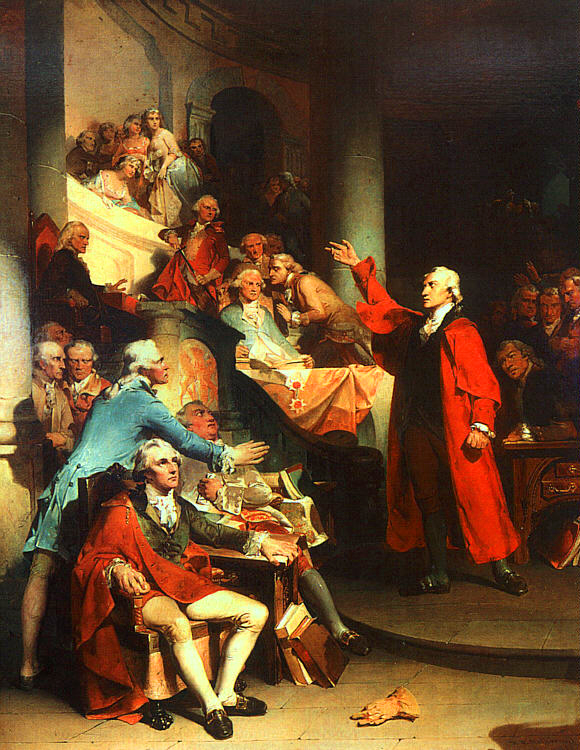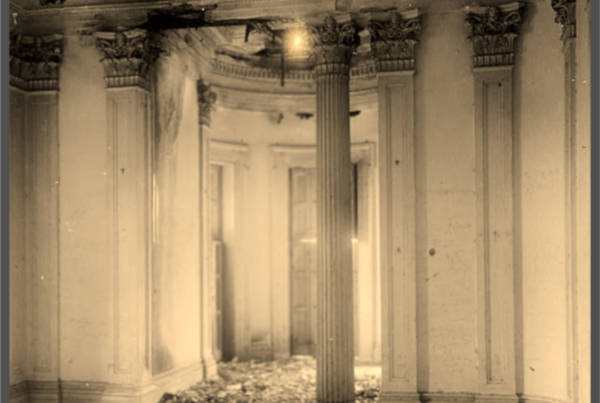Andy Jackson’s famous toast, “The Union—it must and shall be preserved,” is still recorded in most high school U.S. history books. Calhoun’s once equally famous reply, “Next to our liberties, most dear,” has slipped out of many recent editions. Like most of the South, Calhoun was on the losing side of the liberty versus union debate. After the Second War for Independence was lost, the winning side up North has consistently preferred the claims of the Union government to those of individual liberty.
The Liberty which inspired Jefferson, Calhoun, and Davis was, at least in part, the conviction that power is like water: it seeks its own level. A healthy society is one that exercises an economy of political force; it solves family problems at the family level, local problems at the local level, and state problems at the state level. It will reserve the Federal Marshals, Supreme Court decisions, and lettres de chachet for problems that directly affect the nation as a whole. States Rights is only a particular affirmation of this general principle, one that is strongly rooted in the love of liberty. We do not need our states to tell us how to rear our children, and we do not need the Congress or the Supreme Court to tell how to run things in Alabama or South Carolina, even when we are wrong. It was part of the Southern wisdom that the government which governs least governs best.
For the South, liberty was not a libertarian repudiation of standards. Every community has the right—no, the obligation—to set up and enforce a code of principles and behavior. Toleration of dissent does not require a neutral attitude toward vice, as Michael Novak has argued recently. If a pluralistic approach to questions of right and wrong is the hallmark of “democratic capitalism,” then the South has managed to stand outside the orbit of capitalism and democracy. Even so, the principle of “least government” has caused most Southerners to refrain from interfering in private lives. In the midst of drawing up Blue Laws and legislating morality, we are usually careful to restrict the role of government to the public sphere. While New England Puritans were eager to spy on the private lives of citizens, sniffing out sabbath breaking and moral turpitude, Southerners have usually chosen to ignore what goes on between consenting adults, so long as it did not become a public scandal. Prohibition provides a good example of the Southern attitude toward “vice.” The same people who supported dry legislation were often known to take a nip, now and then, with friends. You can call it hypocrisy or simply the frank recognition that the government’s enforcement authority stops at the front door.
Southern political life has always been redolent of these “paradoxes of freedom:” all those dry counties with thriving moonshine operations, the slaveowners who twice went to war to preserve their liberty, and the hard shell Baptist who knew good and well that there was something a little funny about Cousin Seymour, but who would fight you if you said anything about him. Liberty has its paradoxes because it is not an abstraction: it is something concrete, a chain of privileges and obligations which has been forged by generation after generation of Englishmen and Americans. It is not the same liberty enjoyed by the French or the Arabs, because it does not come naturally. A People has to earn it. They have to fight for it.
An understandable disgust with the cheap slogans of natural liberty and equality led many Southerners to the conclusion that it was dangerous to talk about the rights of man, the abstract rights that had been deified by Locke, Rousseau, and Jefferson. It brought George Fitzhugh, a gentle Virginia lawyer, to the realization that civilization was based on loyalty and obedience, not on the “desire for liberty” which inspired “Satan and his fallen angels.” The free and ruthless competition of the Northern states found its best expression in Benjamin Franklin, whose “sentiments and philosophy are low, selfish, atheistic, and material.” Still worse, the practice of unrestrained liberty and equality leads inevitably to socialism, where our real rights—to maintain a family, practice religion, and hold property—are destroyed.
So it was, in the nineteenth Century, the Constitution was broken, the richest section of the nation devastated by war and subjugation, and all power put into the hands of plutocrats and corrupted politics—all in the name of freedom. The same process has been repeated in our own time—the same theatrical gestures and political corruption Abscam and Voting Rights, the guardians of our liberty taking liberties with Senate Pages.
It is not voting that keeps a people free, but stubbornness—a man’s determination to manage his own affairs take care of his own family, and keep his own Counsel. When we have lost that stubbornness—as many American have already—the “right” to vote will mean no more here than in the Soviet Union—the right to collaborate with your oppressor.
This article was originally printed in Southern Partisan magazine, Summer 1982.







